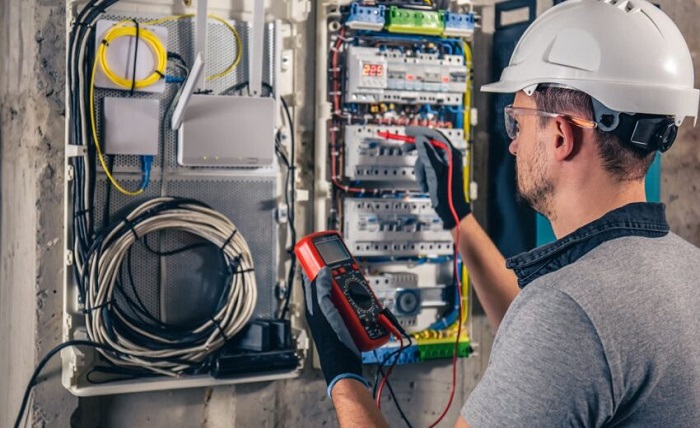Electricians are skilled professionals who work with electrical systems to ensure the safe distribution of power. They install wiring, inspect electrical components, and maintain systems in homes and businesses. Becoming a licensed electrician involves technical training, hands-on practice, and meeting specific local or state regulations.
Many begin their journey with basic education, often focusing on subjects such as algebra and science. These subjects support the comprehension of electrical principles and safety practices. Opportunities for formal training are available through trade schools and training centers associated with organizations like the Independent Electrical Contractors of Greater Cincinnati, which support those pursuing technical careers.
Starting With Core Education and Skill Development
The process usually begins with obtaining a high school diploma or an equivalent qualification. This educational stage builds the necessary background to understand how electrical systems function and how to work with tools effectively. A strong grasp of practical mathematics and problem-solving supports the development of technical skills.
Basic training programs in Greater Cincinnati prepare students for real-world scenarios through coursework related to circuits, safety codes, and tools. Some learners choose to join a classroom-based program to gain structured learning while building a base for future hands-on experiences. These programs are designed to build confidence and readiness for fieldwork.
Learning on the Job Through Apprenticeship Programs
Apprenticeship programs in Greater Cincinnati are the foundation for gaining practical skills and industry exposure. These structured programs offer a blend of classroom learning and supervised on-site experience. They often span several years, during which apprentices work alongside experienced electricians.
Participants learn to handle tools, follow electrical diagrams, and complete system installations. They also study local and national codes that guide their work. This period of training plays a key role in helping individuals gain the qualifications needed to take the licensing exam.
Completing Licensing Steps and Required Assessments
After completing training and accumulating sufficient work hours, candidates must fulfill the licensing requirements of their region. Each state or area may have its criteria, which can include passing written exams. These tests measure a person’s knowledge of electrical theory and safety regulations.
In addition to passing exams, most candidates must submit proof of work experience and classroom hours. Once licensed, electricians in Greater Cincinnati can work independently, follow legal requirements, and confidently take on projects. Continued learning may also be necessary to stay aligned with updates in industry standards.
Choosing an Area of Practice Within the Field
After earning a license, electricians can select a particular area of focus based on their strengths and career plans. Some choose to work on residential properties, handling installations and repairs in homes and apartment buildings. Others may take on commercial or industrial projects, which often involve larger and more complex systems.
In recent years, interest has grown in specialized fields that support modern building practices. One such area involves installing energy-efficient electrical systems that reduce power consumption in new construction. These systems are often used in buildings designed to follow environmentally responsible standards.
Training Programs Designed for Real-World Readiness
Structured learning environments play a vital role in preparing future electricians for the demands of the job. These programs in Greater Cincinnati combine practical instruction with focused coursework, allowing individuals to develop both knowledge and confidence before entering the field full-time. They also provide clear guidance on meeting regional licensing standards through a step-by-step approach.
Some training centers offer pathways that include classroom education, hands-on projects, and access to apprenticeship connections. Organizations with deep experience in the electrical trade often support these programs, ensuring that participants gain relevant skills while staying aligned with industry expectations.
The path to becoming a licensed electrician is not easy, but it is rewarding. The Independent Electrical Contractors of Greater Cincinnati offers resources that help guide candidates through the essential steps. With the right training, dedication, and attention to safety, anyone with the desire to learn can build a successful career in the electrical trade.






